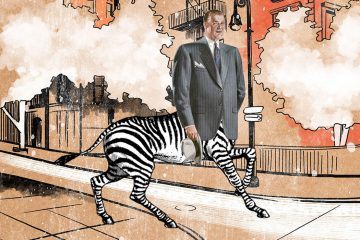Christine Ro in JSTOR Daily:
 Urban Dictionary, as you may know, is a crowdsourced website where anyone can suggest a new word—or a new definition of a word—years before establishment lexicographers catch on. It was founded in 1999 by computer science student Aaron Peckham to make fun of the comparatively staid Dictionary.com. Yet Urban Dictionary has become much more than a parody site, drawing approximately 65 million visitors every month.
Urban Dictionary, as you may know, is a crowdsourced website where anyone can suggest a new word—or a new definition of a word—years before establishment lexicographers catch on. It was founded in 1999 by computer science student Aaron Peckham to make fun of the comparatively staid Dictionary.com. Yet Urban Dictionary has become much more than a parody site, drawing approximately 65 million visitors every month.
Of course, Urban Dictionary is also a repository of adolescent grossout humor, often humor about sexual practices that are the stuff of urban legends (uh, penis McFlurry?). This isn’t just a matter of trifling but ultimately harmless terms. Bigoted words and definitions have thrived on the site, but Peckham believes that offensive words should be left intact. It’s clear from a quick browse through the trending terms that the users are particularly titillated by (or nervous about) women’s bodies (e.g., twatopotamus) and sex between men (e.g., vaginal intolerant).
With its crowdsourced definitions and high speed of coinage, Urban Dictionary is very much a product of the internet age. But it also continues a long history of recording low-brow language: dictionaries of English slang have been around in some form for centuries.
More here.
